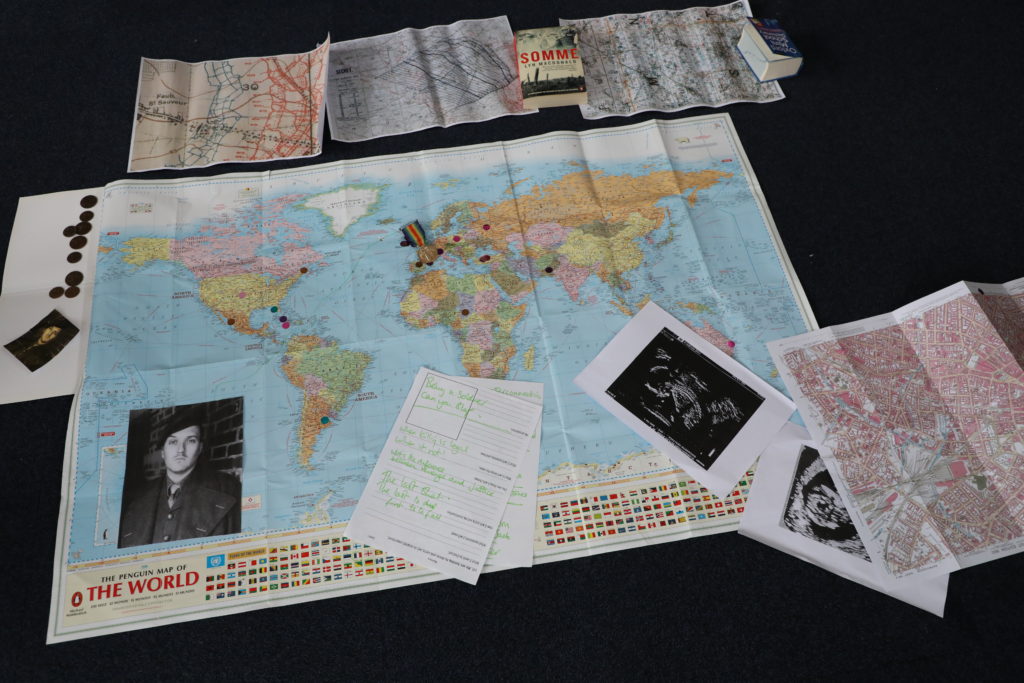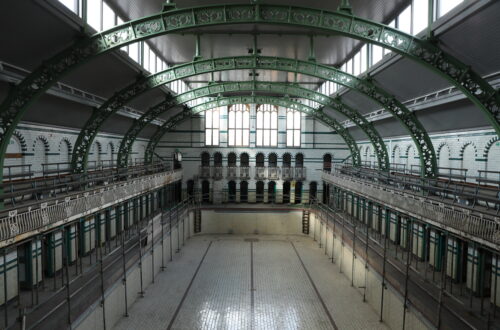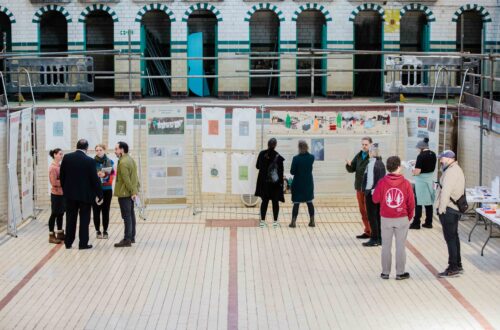
Creating (and defending) Civic Space
One of the motives behind developing Represent was our desire to probe into what the extension of the franchise really meant to people in Birmingham a century ago and to consider what we can learn as we navigate 21st Century challenges. Here we share a blogpost we wrote recently which reflects on June’s ‘Heritage Meet’ outlining some of the discussions with friends and colleagues in the community heritage sector about developing this important work.
We’re a slightly obsessive bunch, those of us with an interest in heritage. Excited by old photos, eager to decipher old maps, poring over minutes from long forgotten meetings, probing people for their memories – audio recorder in hand… what motivates us to keep digging?
Last month, members of PHC gathered together with friends and colleagues for a ‘Heritage Meet’. It was an opportunity to explore the challenges and opportunities of working in community heritage. To find common ground and to find ways to collaborate and support one another.
We had a wide ranging and fruitful discussion thanks to everyone’s generous contributions. We discussed ‘lost projects’ – bodies of work from past projects disappearing; bringing work to parts of Birmingham which are overlooked in heritage work; how to explore challenging or contentious histories as well as some of the finer details of applying for funding and managing community heritage projects.
What pulled everything together was our driving ambition to explore the relevance of heritage to understanding and acting in our world today.
Matt Hinks and Richard Holmes from Big Brum Theatre spoke about their National Lottery Heritage Fund supported project, ‘The Threshold of Home: 1918’. It delves deep into the realities of working class life in Birmingham from 1914-19 and asks children to reflect on the impact of living through periods of social and political change – both for those on the frontline of change, and its resonance through the generations. It’s a child led project, using historical fiction as a stimulus for enquiry about what it means to be a citizen and a human. People’s Heritage Co-operative will be supporting the project through contributing research and co-delivering workshops.

Joe Peacock from CASBA has been working with adults and children with a learning disability to explore the history of Special Education in Birmingham – and goodness don’t we need to hear those voices when SEND provision is being cut to the bone as a result of school funding cuts? Education is Special brings together current and former pupils at the schools to record their experiences of what it’s like to go to a special school, interviewing teachers and parents and highlighting changes in legislation.
Up until the end of the 1960s, if a child was assessed to have an IQ of under 50, their family could receive a devastating letter from the Local Education Authority. This would state that they were officially classified as ‘ineducable’, and had no entitlement to a state education.
Irene de Boos is working on the James Watt 2019 Bicentennial programme, ‘Watt in the World’. As well as highlighting his many achievements in the fields of Science and Engineering, the project also explores the legacy of his work and his thinking. You can head along to the project’s exhibition at the Library of Birmingham from now until 2nd November this year.
Irene is also co-ordinating activities during Birmingham Heritage Week which runs from 12th-22nd September. With the tagline ‘Your Stories. Your Heritage. Your City.’ it is less about being a spectator to History as giving people opportunities to connect with their own Heritage. Keep your eyes peeled for some events that we will be hosting ourselves!
Our colleague Moya Lloyd shared some of her experience on a variety of Arts and Heritage projects. She has been supporting our ‘Represent‘ project through observing sessions and helping us to evaluate our work.
We also heard from Josh Allen, a freelance Heritage practitioner, researcher and journalist, Rachel MacGregor, Chair of the Friends of Birmingham Archives and Heritage and Paul Long from the Birmingham Centre for Cultural and Media Research, all of whom are involved in devising, developing and promoting community heritage projects.
What pulls all of this together is what Richard referred to as our desire to ‘create civic space’. Through exploring history we can create the space for important conversations which are informed by the past. It is a learning and reflective process and increasingly important given the extent to which public space and public discourse has become dominated by private and corporate interests. Sometimes it involves physically occupying and reclaiming a space for civic purposes, even if it is for a small period. Often it is about interrupting and challenging other discourse.
The fact that we hosted the event in The Warehouse was particularly apt. Last year PHC members were involved in helping to tell the story of the building through the ‘Birmingham Friends of the Earth, Then and Now: 40 Years at the Warehouse’ project. Developed by Friends of the Earth and other like-minded groups over the past 40 years as a space where people can come to debate, learn and act on important issues relating to environmental and social justice, it is in itself an important space for promoting civic space and discourse as we navigate the many challenges of our age.
We are eager to take these discussions forward – to look at creating opportunities for us to engage people meaningfully with the past and present, to find ways to collaborate and learn from one another and to negotiate the many challenges of making high quality projects happen.
So here is an invitation…
As we develop ideas for our next ‘Heritage Meet’, we want to know what would be useful in taking our networking forward. You may want more opportunities to learn about other projects locally; it could be practical support with applying for funding, managing or evaluating a project; a skillshare session or a chance to hear from someone whose work you are interested in. Or perhaps you have skills, approaches and ideas that you would like to share with others? How do we develop and nurture a community of practitioners and what support should be out there?
Please send through your ideas and reflections to rachel@peoplesheritagecoop.uk. We will be taking forward your ideas to create an itinerary for the next ‘Heritage Meet’ this coming Autumn.
To keep up to date with our plans and current projects, don’t forget to sign up to our occasional mailing list: http://peoplesheritagecoop.uk/join-our-mailing-list/.




